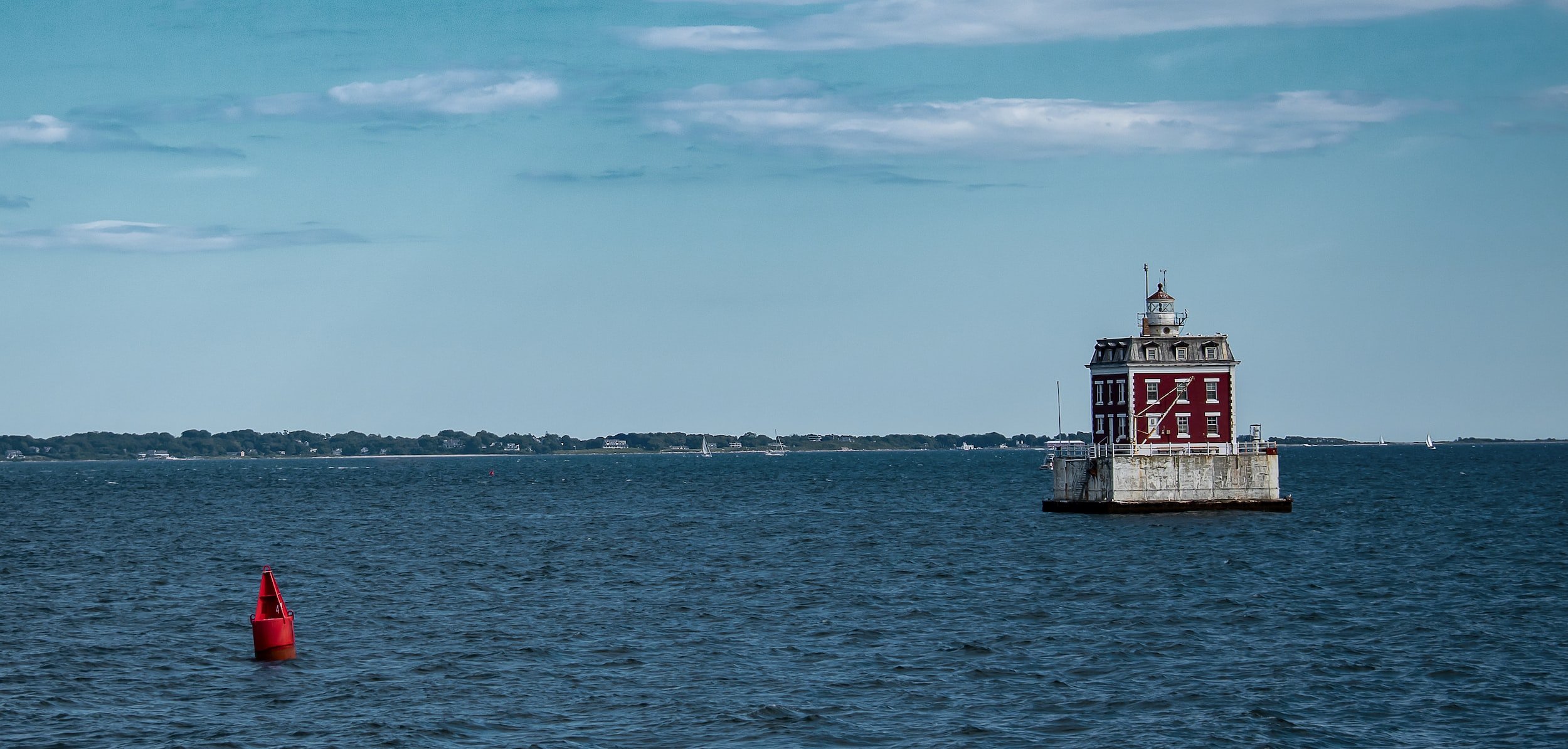
Fertilizer Assessment
How much fertilizer? When to fertilize? What are the New York State laws? Learn everything you need to know below!
As residents that live around Long Island Sound, we have the privilege and responsibility to protect it. Nitrogen pollution from lawn fertilizer flows into Long Island Sound and pollutes the marine environment. The New York State government and Suffolk county have acknowledged the damage caused by excessive or poorly timed fertilizer. They have enacted laws restricting fertilizer use to protect our fresh and saltwater bodies.
How does my fertilizer affect Fishers Island seagrass?
Seagrass is a marine plant that has learned to thrive in the nitrogen-limited environment of marine ecosystems. In a nitrogen-limited system, the ecosystem’s growth is determined by how much nitrogen is in it. Adding more nitrogen will fuel growth. When it is too much, invasive species more adapted to handle large nitrogen loads take over. When nitrogen from your lawn fertilizer leaches into the marine environment in Long Island Sound, the algae and phytoplankton out-compete seagrass.
Algae are better adapted to live in high-nitrogen environments [1]. These species grow fast in the presence of nitrogen and create blooms. Blooms rapidly reduce the amount of light available to seagrass[2, 3]. Since seagrass requires much more light than algae to survive [4], this reduction is detrimental to its health. A prolonged period of reduced light causes seagrass beds to die [3].
In addition to algae, epiphytes can also present a danger to seagrass when nitrogen levels are high. Epiphytes are plants that grow on the surface of another plant and receive nutrients from the environment around them. Many are on seagrass blades; sea creatures will graze on epiphytes as an essential part of the marine food web. When too much nitrogen enters the marine system, epiphytes grow out of control and cover the seagrass blade [5]. These growths will block light from the seagrass and eventually kill it.
Seagrass loss is habitat loss. When we lose our eelgrass, we lose a habitat where small fish take refuge from predators, birds hunt for prey, and sea creatures graze. Managing your fertilizer use will protect this habitat around Fishers Island and help it to continue to flourish.
Fertilizer is not the answer to all your plant problems. Identify the source of the issue before you treat it.
Use these helpful links to try to identify your plant’s issue.
Fertilizer: Timing
There are many ways to determine how much fertilizer you should apply to your lawn. Experts recommend spreading no more than 1 pound of nitrogen per 1000 square feet for each application. If you notice that your plants are thriving under your current regimen, try cutting the fertilizer you use by half. Observe your lawn to see if it continues to thrive.
If you want to take a more mathematical approach to fertilization, try using a fertilizer calculator to help determine the amount you should apply to your lawn.
Fertilizer Calculator
Take the guesswork out of your fertilizing routine. A soil test will help you understand what your lawn needs and does not need. Using the results, you can optimize your lawn care regime.
Diagnose Your Lawn
NY State Law on
Lawn Fertilizer
-
NY State Law: December 1 - April 1
Suffolk County Law: November 1 - April 1
-
Do not apply fertilizer to sidewalks, driveways, or other surfaces that cannot absorb it. If your fertilizer accidentally gets on these surfaces, do not wash it off. Sweep the fertilizer back onto your lawn.
-
You may only fertilize 20 feet away from any water body.
Exceptions:
There is a 10ft barrier of shrubs, trees, and plants between your fertilizing area and the water body.
You may get no closer than 3 ft away from a water body when applying fertilizer with a drop spreader, deflector shield, or spreader guard.
-
Use zero phosphorus fertilizer unless you are establishing a new lawn or a lawn test recommends it. This will protect your freshwater bodies and drinking water!
Our intent is not to provide legal advice. Please read the NY state laws to ensure your fertilizer is legal and safe.




